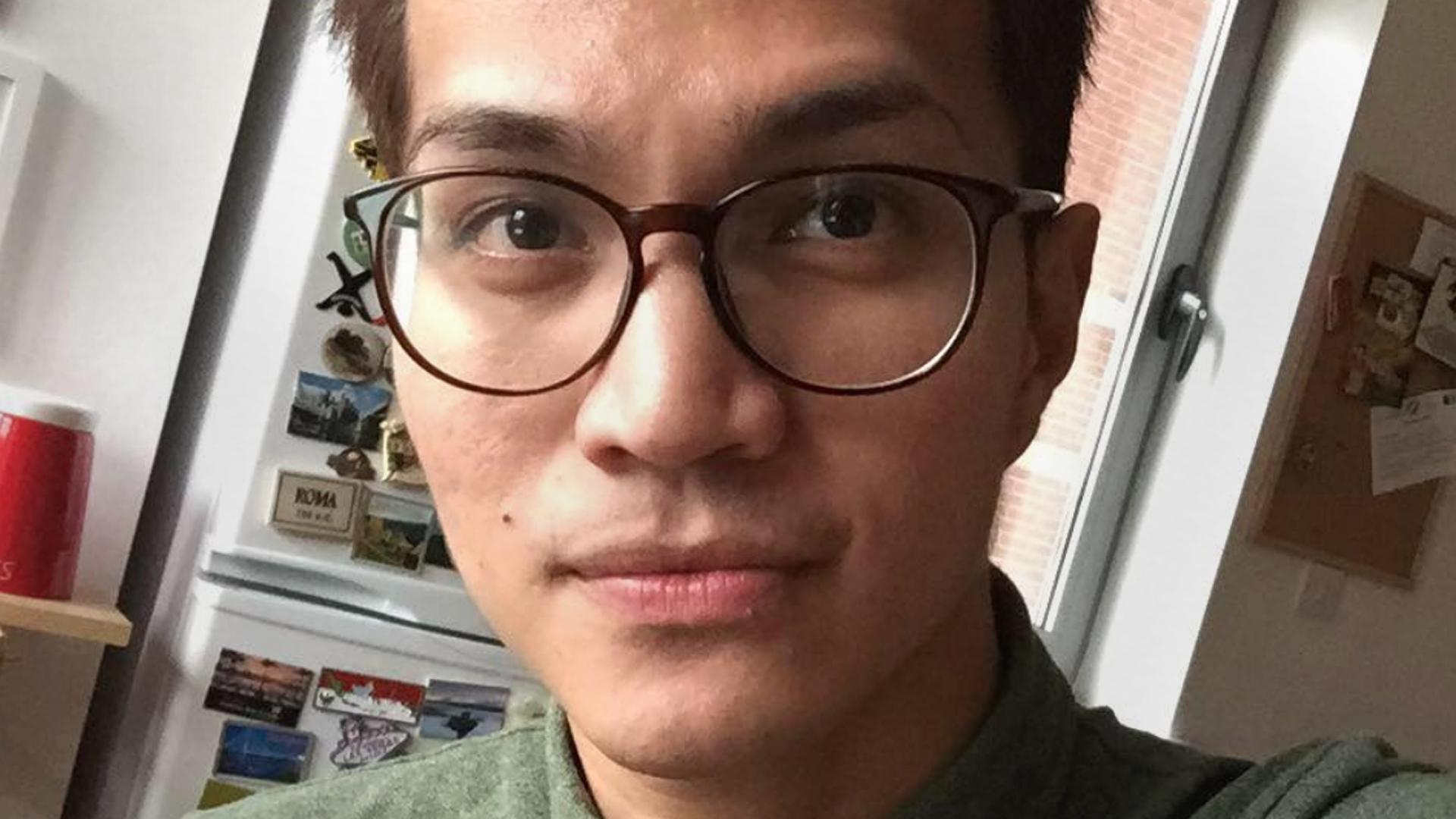Girls Night In: 'It's so quiet in the city'
- Published
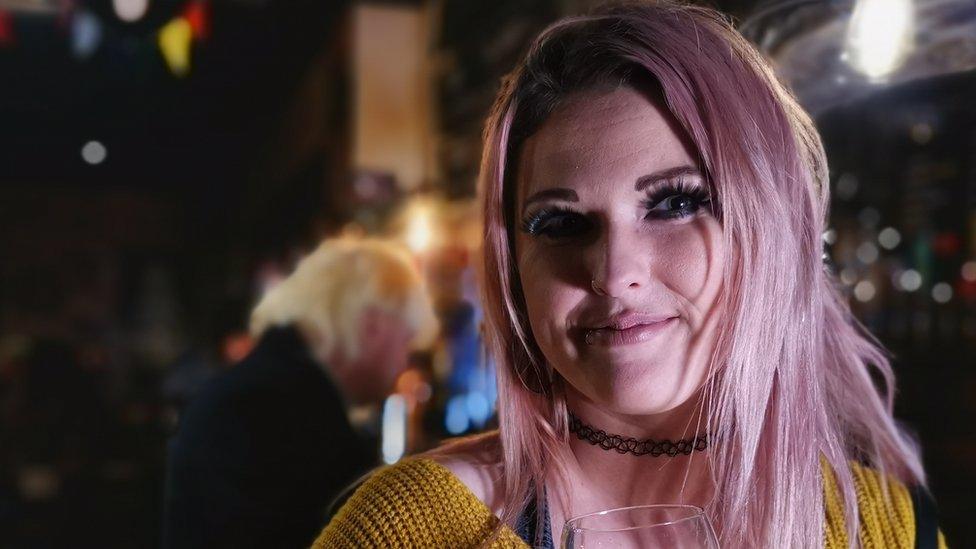
Kim Howells said women should be defiant and go out rather than stay at home
Across the country, women have been boycotting nightclubs and bars, as part of the so-called "Girls Night In" protest to highlight the problem of drink spiking. BBC News caught up with women in Nottingham to find out if they believe the protest will work.
Nottingham on a Wednesday night is normally buzzing with students.
Young people from the city's two universities head out, filling the bars and clubs with an energy that has earned Nottingham a reputation for its vibrant nightlife.
But recently Nottingham has come under the spotlight as police investigate a spate of reports of spiking by needle.
Last night, its streets felt noticeably subdued, with bars closing early and the biggest student nights called off.
"There's a lot of fear around," says law student Kate Rowlson. "I can say that for myself and all my friends.
"A lot of us have stopped going out as much because we're scared something could happen."
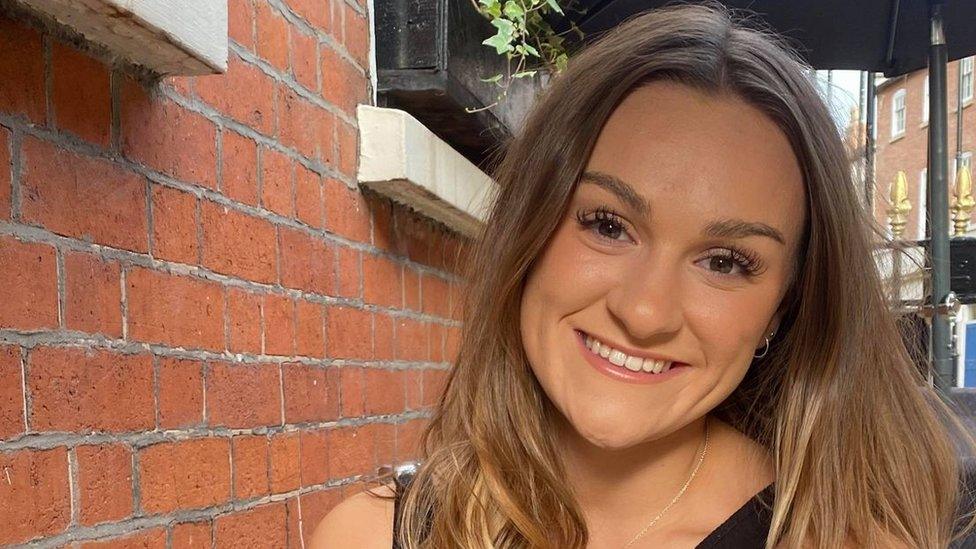
Kate Rowlson said women "deserve to not live in fear"
The 21-year-old, who said she was herself spiked in her first year of university, was among those refusing to go into the city as part of the campaign.
The movement has seen thousands of women stay at home instead of venturing out in almost 50 locations including London, Edinburgh, Bristol, Manchester, Leeds and Bournemouth, as well as Nottingham, in the name of calling for tougher measures on drink spiking.
While support has spread rapidly via social media, the campaign has not been without its critics who argue women staying at home is not the solution to the problem.
But Ms Rowlson, who is the secretary of the Trent Cocktail Society, said most of their 2,500 members, largely female, supported the boycott.
Instead of heading out for its usual Wednesday night at city club Ocean, the society hosted an at-home quiz.
"As students there's not much we can do; we can't change laws," she said.
"But none of us want to live in fear.
"We say we do not accept this behaviour; we will not tolerate it."
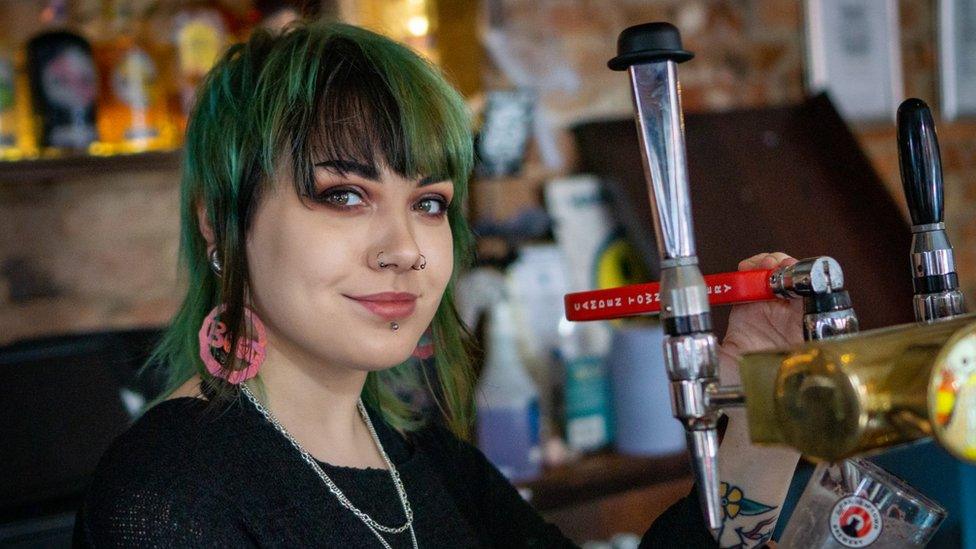
Hannah Foxton said things were going backwards for women
Those who had gone out said there was a noticeable change of mood in the streets around the normally buoyant student bars.
Alana Sewell, 18, who was meeting a friend, said: "It is so quiet; last time we were here at the same time it was packed, there were people everywhere.
"It's good that people are taking it seriously.
"But will it go back to being busy next week or month and still those people are not getting caught?"
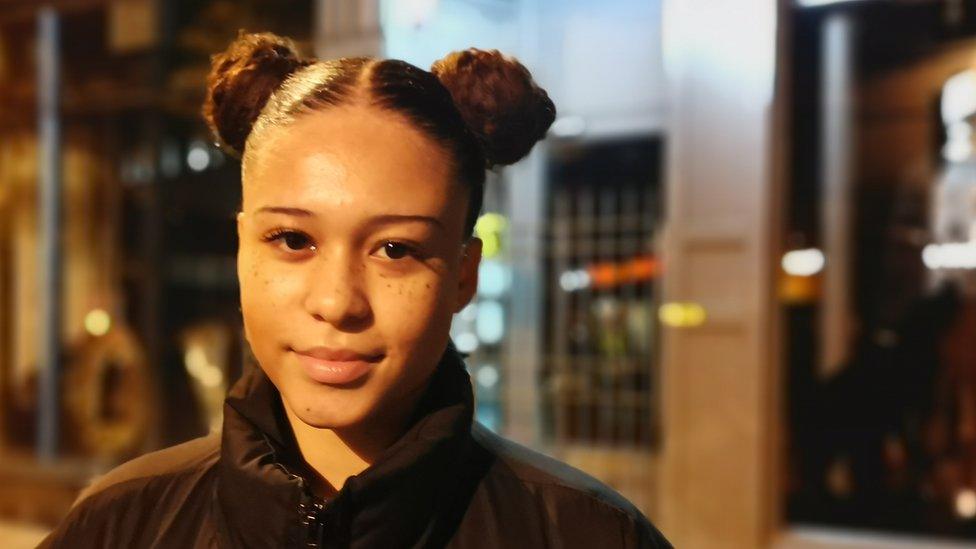
Alana Sewell said the city was noticeably quieter
Sarah Dickin, 52, had gone out to a bar but said she believed the campaign had successfully given women a voice.
"Maybe there's other ways they could do it, but we're talking about it now and that opinion is being voiced," she said.
"Nottingham has a massive student population, so if a city like us is getting involved it's going to make the headlines."
However Kim Howells, 32, who had gone to a pub, said that while she had been worrying that something might happen to her on a night out, she did not believe the boycott was the right solution.
"Girls should stand up and say 'no, you are not going to intimidate us'," she said.
"We shouldn't be made to feel shut or locked away. I don't think staying at home will work."
Some bars had decided to swap the shifts of their female staff to allow them to stay at home in solidarity.
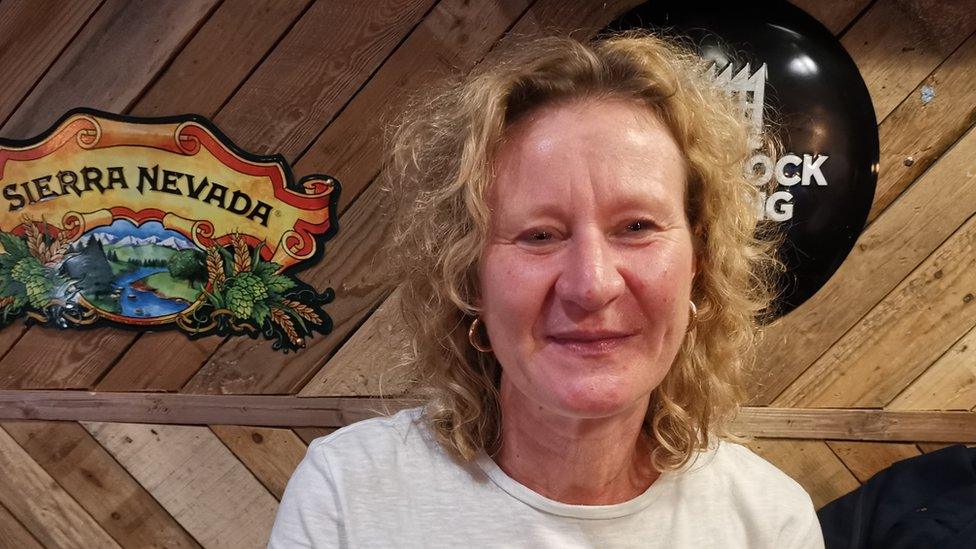
Sarah Dickin said she believed the campaign had given women a voice
Hannah Foxton, 20, works as a supervisor at The Angel Microbrewery in Hockley which, like many neighbouring venues, closed early and allowed its female staff to join the boycott.
"This is a big thing for many businesses to do," she said.
"It will show pubs and clubs what will happen when we're not around to serve drinks or to be customers."
She said she herself had previously been spiked at a gig and the experience had been "terrifying".
"It's heartbreakingly common for me and my friends," she added.
"This is why we need to carry on taking a stand. We need change.
"We have been having to fight for too long."
Across September and October, there have been 198 confirmed reports of drink spiking and 24 reports of spiking by injection, the National Police Chiefs' Council has said.
The incidents took place at both licensed premises and private parties and included male and female victims.
But the campaign has drawn some criticism for suggesting women should stay at home rather than go out.
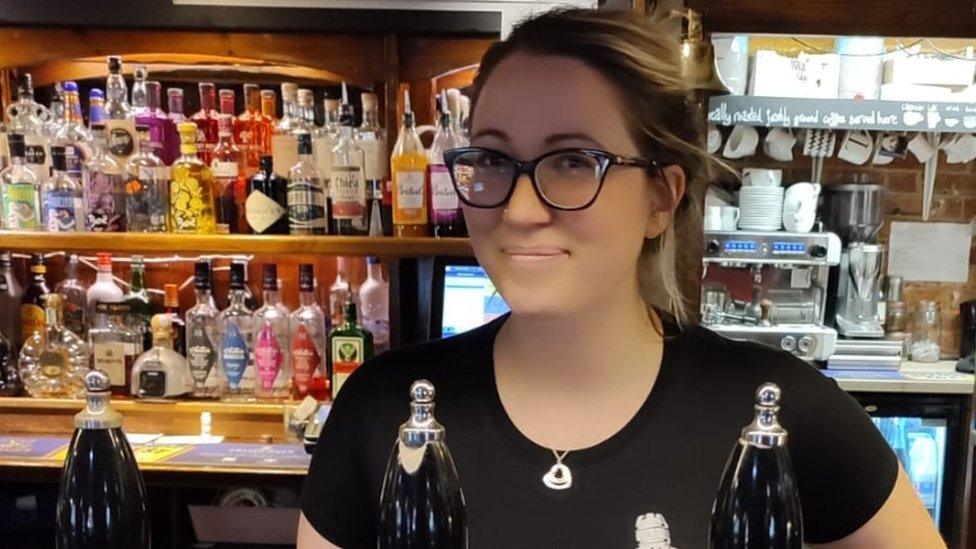
Rosie Downing believes the boycott is not the right way to deal with the problem
Castle Rock Brewery, which runs a chain of pubs in and around Nottingham, said many of their female staff did not want to take part, feeling they should not have to change their behaviour in response to the attacks.
Rosie Downing, 29, who runs the brewery's Horse and Plough in Bingham, said the protest had left her "confused".
"Why are so many women wanting to stay in to take a stance against harm?" she asked.
"If anyone should be staying in it should be men.
"Women are always being told we have to change our behaviour. With a big night in, we're being told to compromise."
She felt it would be better to tackle the root cause by educating men to change their behaviour.
She also feared the boycott meant some female workers would feel pressured into missing a night of work and therefore pay.
"If the campaign were men staying at home so we could have a big girls' night out, that might have packed more of a punch," she added.
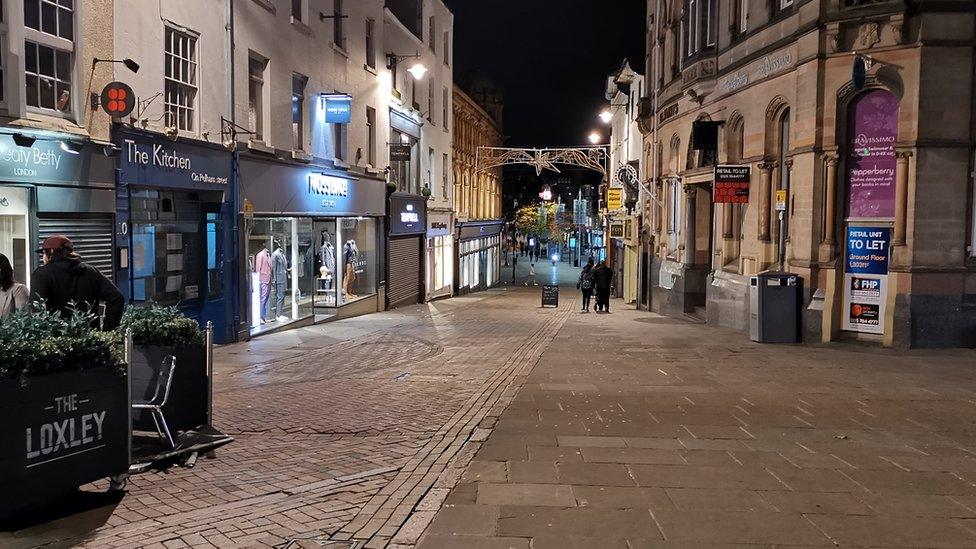
The impact of the boycott could be seen in the quieter-than-usual streets
Elsewhere in the country though, there was a sense that the protest had had an impact.
Petra Mirosevic-Sorgo, 21, a Loughborough University student who had helped organise the boycott in the Leicestershire town, said she herself had been "distraught" after being spiked.
She said her university's student union had only sold 60 tickets for its Wednesday night event, which she said showed people were behind the boycott.
"Normally 3,000 plus people go out on a Wednesday, so we're quite happy that people are actually taking this seriously," she said.
"On one side, we want to stand in solidarity with the past, present, and future victims of spiking and, on the other hand, it's to make a stand against nightlife hosts and events - to say, 'it's really not good enough'.
"And just to make those who have been spiked feel that they've been listened to."
In Nottingham, the police have said they are taking reports of spiking seriously and are "thoroughly investigating" them.
They have also insisted the city remains a safe place to be.

Follow BBC East Midlands on Facebook, external, on Twitter, external, or on Instagram, external. Send your story ideas to eastmidsnews@bbc.co.uk, external.

Did you take part in the protests, or have you been affected by the issues in this story? Share your experiences. Email haveyoursay@bbc.co.uk, external.
Please include a contact number if you are willing to speak to a BBC journalist. You can also get in touch in the following ways:
WhatsApp: +44 7756 165803
Tweet: @BBC_HaveYourSay, external
Please read our terms & conditions and privacy policy
If you are reading this page and can't see the form you will need to visit the mobile version of the BBC website to submit your question or comment or you can email us at HaveYourSay@bbc.co.uk, external. Please include your name, age and location with any submission.
Related topics
- Published27 October 2021

- Published7 January 2020
